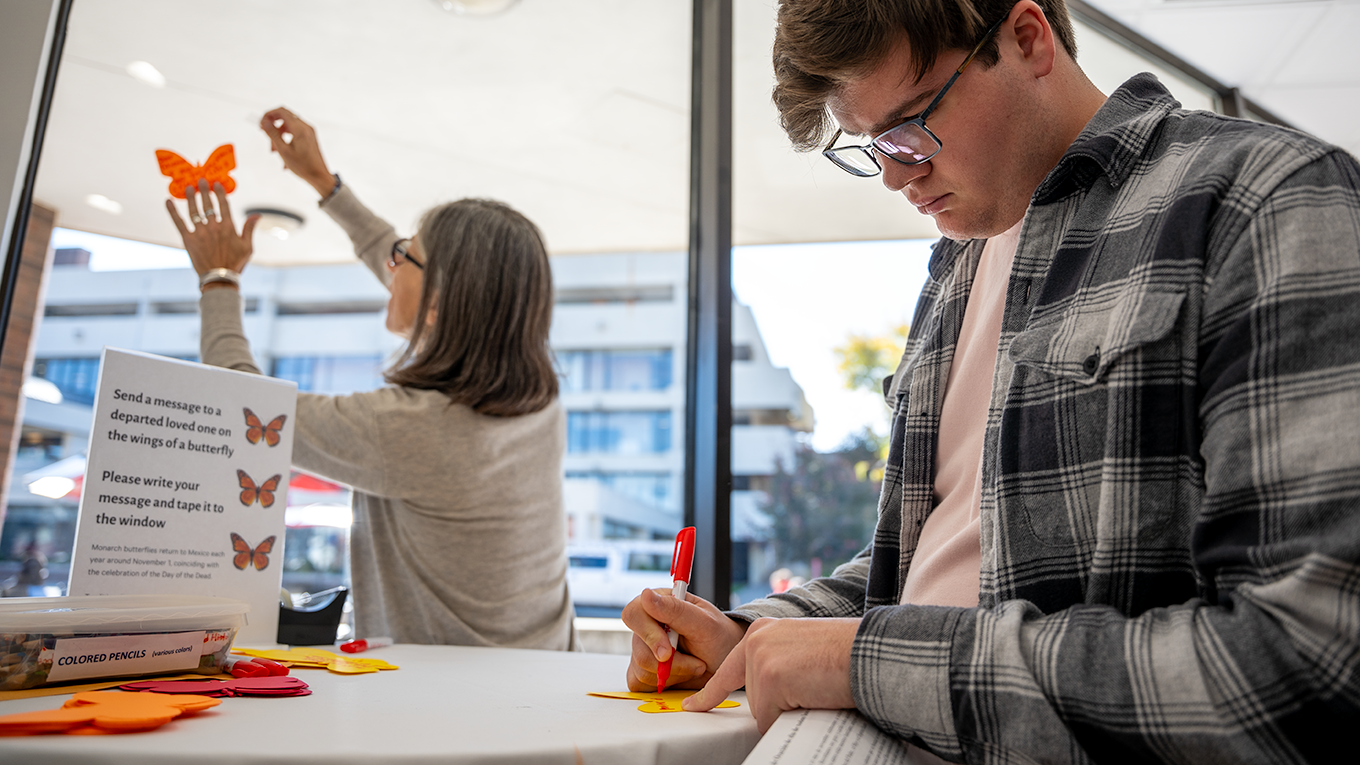With an increasingly globalized world, having the knowledge of another language and culture gives you a wider worldview and prepares you for a number of careers after graduation. Spanish is the second most widely spoken language in the world, with over 500 million native speakers. Majoring or minoring in Spanish can open up a world of opportunities for you, both in your personal and professional life.
Based in Duquesne's liberal arts foundation, our Spanish major or minor will increase your career prospects, as many businesses and organizations look for bilingual employees, and a Spanish degree can give you a competitive edge in the job market. And learning a new language requires you to think critically and solve problems, a process that can help you develop and enhance these skills in other areas of your life as well.
As you delve deeper into the discipline, you'll find new doors opening, and your foundation in Spanish will help you step through them with confidence.
Major in Hispanic Studies
If you choose to major in Hispanic studies, you will need to complete 30 credits of coursework, and we begin counting at the Spanish 202 level. Spanish 101-202, as well as other courses also fulfill your Bridges requirements in Communication & Creative Expression and Cultural Diversity & Inclusion. After completing Spanish 202 or testing above 202 through a placement exam or other means, you have two paths to complete 6 credit Conversation and Composition course(s):
- You can take MLSP 301 and MLSP 302 (3 credits each), which are taught in two different semesters. These courses often involve Community Engagement activities, and thus, they fulfill the Community Engagement requirements. You can begin in either course.
- MLSP 306 Intensive Spanish Conversation and Composition is a 6-credit course taught in one semester to allow students to more quickly start taking upper-level Hispanic classes.
You may then take any upper-level language, literature or culture classes offered by the center to complete the 30 credits. You are allowed to take one upper-level course through the center taught in English.
Also, you are strongly encouraged to spend a semester or summer studying abroad in a Spanish-speaking country.
Minor in Hispanic Studies
If you choose to minor in Hispanic studies, you will need to complete 15 credits of coursework, and we begin counting at the Spanish 202 level. Spanish 101-202, as well as other courses also fulfill your Bridges requirements in Communication & Creative Expression and Cultural Diversity & Inclusion. After completing Spanish 202 or testing above 202 through a placement exam or other means, you have two paths to complete the 6-credit Conversation and Composition course(s):
- You can take MLSP 301 and MLSP 302 (3 credits each), which are taught in two different semesters. These courses often involve community engagement activities, and thus, they fulfill the community engagement requirements. You can begin in either course.
- MLSP 306 Intensive Spanish Conversation and Composition is a 6-credit course taught in one semester to allow students to more quickly start taking upper-level Hispanic classes.
You may then take any upper-level language, literature or culture classes offered by the center to complete the 15 credits. You are allowed to take one upper-level course through the center taught in English.
Also, you are strongly encouraged to spend a semester or summer studying abroad in a Spanish-speaking country.



